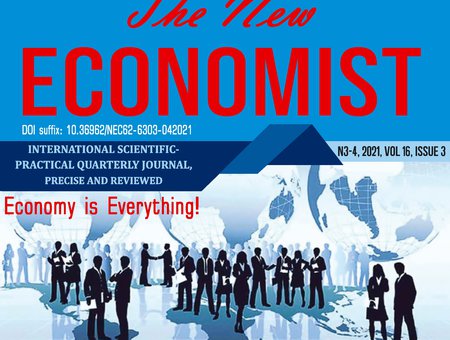The New Economist N3-4, (2021), Vol 16, Issue 3

Published Date:
11/01/2022
Copyright (c) 2022 ONISE MIRTSKHULAVA / ონისე მირცხულავა

This work is licensed under a Creative Commons Attribution-NonCommercial-NoDerivatives 4.0 International License.
Article Views: 1118
